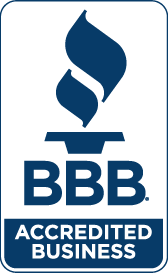Ch 11–Opt In or Opt Out, Delaware’s Take

In re Arsenal Intermediate Holdings LLC, 23-10097 (Bankr. D. Del. March 27, 2023)
Delaware Judge Explores the Theories Behind ‘Opt-In’ and ‘Opt-Out’ Chapter 11 Plans
Peculiar circumstance compelled a Delaware judge to depart from his usual approval of ‘opt-out’ plans that grant non-debtor releases.
Bankruptcy Judge Craig T. Goldblatt of Delaware wrote a 24-page opinion musing on the question of whether creditors must affirmatively opt in to grant releases to non-debtors or whether it’s ok for a chapter 11 plan to bind creditors to third-party, non-debtor releases if they don’t opt out.
For himself, Judge Goldblatt said he would generally bind creditors to releases of non-debtors unless they opt out. But the case before him was unusual. So, the judge exercised his discretion to rule that creditors must be provided with additional protections before confirming an opt-out plan.
The March 27 opinion might also be read as a subtle suggestion for the Third Circuit to decide, definitively, whether opt-out plans are permissible in chapter 11.
The Unusual Case
The Subchapter V debtor was an administrator of health care plans for medium-sized and small companies. From premiums paid by the employers, the debtor paid health care costs up to $10,000 per employee. For larger costs, the employers purchased other policies.
The debtor fell into chapter 11 after failing to pay all claims submitted by health care providers. Were the providers not paid by the debtor, the providers could pursue claims or file suits against the employees.
On a temporary basis, the parties in the case didn’t want providers pursuing employees for medical bills that the debtor didn’t pay. With universal agreement, Judge Goldblatt signed an order enjoining providers from pursuing claims against employees until late July 2023. The same order extended the employees’ claim-filing bar date until late September 2023.
Meanwhile, the debtor pursued confirmation of a chapter 11 plan that would grant non-debtor, third-party releases to the debtor’s parent corporation and to the parent’s directors and officers.
It was an opt-out plan. In other words, insured employees would have granted theoretically consensual releases to non-debtors unless they opted out of the releases a week before the plan’s confirmation in early May.
Because the debtor was proposing a Subchapter V plan, creditors would not be voting. Therefore, creditors were to be given a special form to opt out.
The U.S. Trustee objected, contending that all plans should be opt-in. Alternatively, the U.S. Trustee argued that the unusual facts of the case meant it should be an opt-in plan.
There were problems not present in typical chapter 11 cases. First, covered employees might not know they even had claims against the non-debtors because the temporary stay barred health care providers from pursuing claims against them. Second, employees would have consented to the releases if they did not opt out in early May, but they would have had no notion that they should have opted out, because the providers were enjoined from pursuing them until late July.
Thus, Judge Goldblatt was charged with deciding whether he would permit an opt-out plan.
Judge Goldblatt Surveys Cases Coming Down Both Ways
Judge Goldblatt devoted much of his opinion to analyzing the theories employed by courts that require opting in and those that permit opt-out plans. We recommend reading the opinion in full text.
Judge Goldblatt read the Third Circuit’s opinion in In re Continental Airlines, 203 F.3d 203 (3d Cir. 2000), to suggest that nonconsensual releases are permissible when certain “hallmarks” are present. “The obvious implication” of the case, he said, “is that consensual third-party releases ought to be noncontroversial.” [Emphasis in original.] However, he found no Third Circuit cases defining “consensual.”
Judge Goldblatt examined cases from both ends of the “spectrum.” At one end are courts that require opt-in plans. They require affirmative consent based on notions of contract law, where silence cannot bind someone to a contract. To that point of view, he cited a bankruptcy judge in New York and one in Delaware.
At the other end of the spectrum, he found opinions by courts, like his, where nonconsensual releases are permitted. They view the opt-out provision in a plan like any other provision in a plan: Due process is supplied if the creditor is validly served and does not respond by opting out. Those courts view opt-out provisions as being waiveable, like bar dates and consents to the entry of final judgments.
Realistically, Judge Goldblatt said that everyone who fails to opt out cannot be said to have done so knowingly. They may have been “careless, inattentive, or mistaken,” he said. Rather than calling opt-out plans “consensual,” Judge Goldblatt said that creditors more accurately might be said to have “forfeited” their rights.
Telling the reader where he stands, Judge Goldblatt said that “a third-party release cannot be said to be fundamentally different from other plan provisions.” A creditor, he said, “may not safely assume that a plan relates only to its dealings with the debtor and not third parties.”
Judge Goldblatt therefore said he was “generally comfortable describing third-party releases as consensual so long as there is conspicuous disclosure and a simple mechanism for impaired creditors to exercise the opt-out right.”
The case before him was unique. Under the plan as written, creditors would opt in by inaction before they even knew they might have claims against non-debtors that they were releasing.
Exercising discretion, Judge Goldblatt gave the debtor an alternative. The plan could be opt-in, or creditors could be allowed to opt out coterminous with the bar date at the end of September, when employees will know whether health care providers will be pursuing claims against them.
Choosing between the options, the debtor decided to extend the deadline for insured employees to opt out until the end of September.





